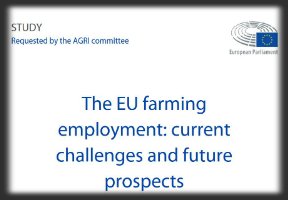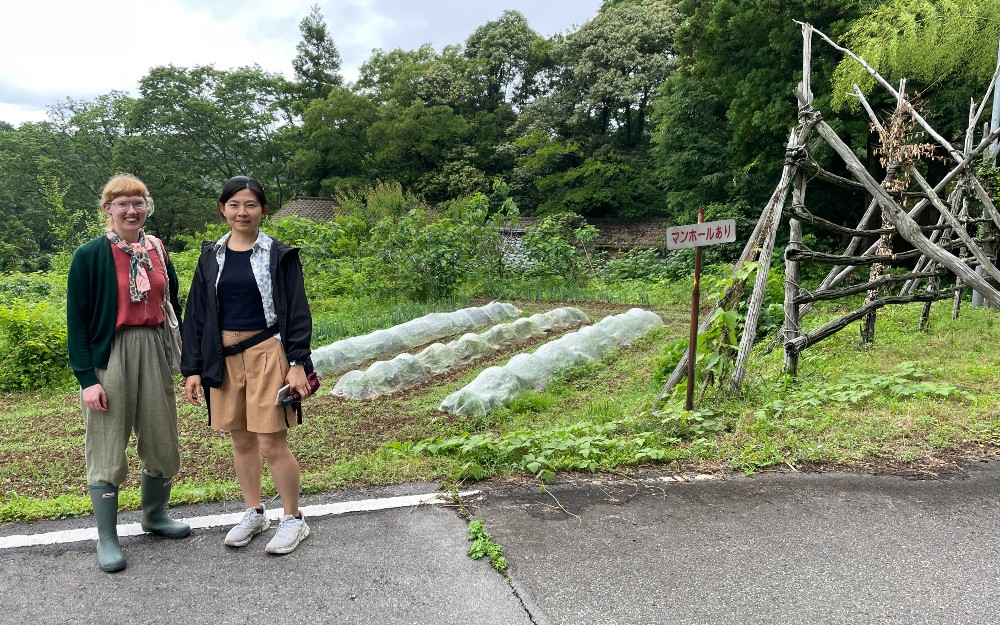This week the European Parliament’s Committee on Agriculture and Rural Development published a report investigating the EU farming employment sector. The CCRI was part of a consortium led by the Austrian Institute for Regional Studies (OIR), Red2Red Consultores (Spain) and University of Tuscia (Italy) in the study entitled ‘The EU farming employment: current challenges and future prospects’.
The report examines the current structure of and latest trends in EU farming employment, exploring in particular the drivers of agricultural labour markets and how they differ across Europe. Starting from an analysis of the historic and spatial patterns of changes within agricultural holdings and the labour force in Europe, the study then delves into the determinants and effects of such developments, the associated challenges and the microeconomic strategies implemented to overcome them. The report discusses also the role and performance of the CAP and of other national and regional institutional frameworks in maintaining agricultural employment and improving farmers’ working conditions in rural areas.
The methodology employed in the report consist of different types of analyses: an extensive literature review which identifies and discusses the findings of previous research on the evolution and the drivers of agricultural labour markets in the EU, and the role of the CAP in that domain; an analysis of labour markets based on current data and models; an in-depth examination of some of the main trends and issues from contrasting regional case studies.
Results show that the agricultural labour market in the EU is heterogeneous and composed by different types of employment. Many parts of Europe predominantly feature family farming models, but some regions demonstrate a majority of externally hired labour and others strongly rely on temporary labour.
This picture is further complicated by a number of challenges affecting the agricultural labour market. The quality of life in rural areas for farmers and their families, the ageing of the farm managers’ population, the urban-rural income gap and ensuing “brain drain” of young educated workers towards more vibrant economies, the difficult access to credit and lack of targeted investment, the shortage of labour supply during season peaks and the employment of migrant workers to meet this need, and the adverse and potentially sizeable effects of climate change on agriculture have been recurrently mentioned as challenges for the regional agricultural sectors researched. The impact of the CAP on agricultural and rural jobs, as so far reported by different evaluations performed across Europe, is mixed.

Mauro Vigani who was part of the CCRI research team said “the conservation and creation of agricultural and rural jobs is one of the historical objectives of the Common Agricultural Policy (CAP) and in order to assess how effective the CAP has been in achieving this goal, it is critical to have an in depth and up to date knowledge of the structure of the agricultural labour market throughout the EU. This is even more important in times where political discussion is focusing on the development of a reformed CAP after 2020”.
Based on the result, the report offers some key recommendations to curb some of the main issues identified through the 2021-2027 CAP:
- Increasing efforts to keep young generations within the sector and encourage new entrants to take up or set up farming businesses.
- Improving the quality of rural employment by investing in diversification and added value to farming, in line with the “greening” and sustainability strategies.
- Tailoring rural development support to the needs and potential of the region/country.
- Offering more flexibility to fine-tune CAP Pillar 1 to meet regional needs
- Better integrating and coordinating the CAP goals and tools with EU social policies and other European Structural and Investment Funds, especially in respect of the migrant workforce – a potential solution to rural depopulation.
The report and its Annex can be downloaded from the European Parliament website:
Research for AGRI committee – The EU farming employment: current challenges and future prospects
The report can also be accessed via the University of Gloucestershire’s Research Repository:
Research for AGRI committee – The EU farming employment: current challenges and future prospects – University of Gloucestershire Research Repository.





